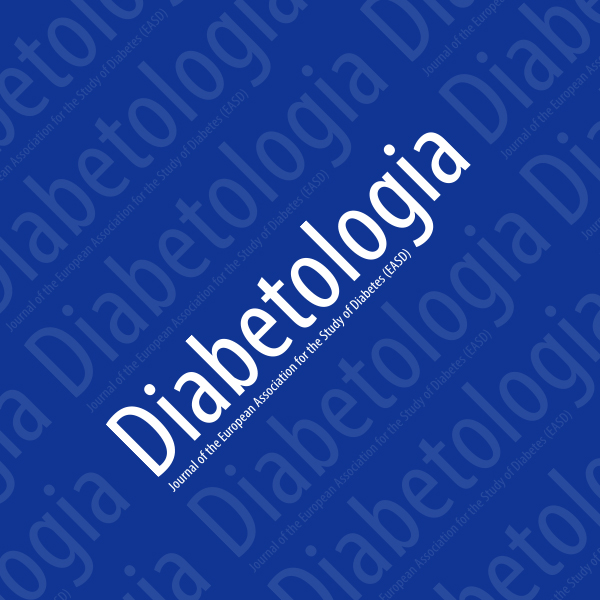Editorial: The COVID-19 pandemic may be receding but the diabetes pandemic rages on

Hindrik Mulder1 & Tove Fall2
1. Unit of Molecular Metabolism, Lund University Diabetes Centre, Malmö, Sweden
2. Department of Medical Sciences, Molecular Epidemiology, Uppsala University, Uppsala, Sweden
Corresponding author: Hindrik Mulder, hindrik.mulder@med.lu.se
https://link.springer.com/article/10.1007/s00125-022-05683-9
To the relief of everyone, the negative impacts of the COVID-19 pandemic appear to be receding. It is too early to declare ‘game over’ but the lower virulence of the omicron variant of SARS-CoV-2, the increasing coverage of the vaccination programmes and the reduced burden on healthcare by seriously ill patients are all very good signs, instilling hope. Consequently, many countries are downgrading the societal threat imposed by SARS-CoV-2 infections and, at variable paces, lifting the restrictions that have so strongly interfered with the lives of so many people.
Undisputedly, the COVID-19 pandemic has been a serious threat to modern society. Many efforts over the years to come will try to establish how, why and to what extent this has affected the world. Ignoring for a moment the direct efforts to stop and mitigate the COVID-19 pandemic, it has had a monumental impact on research, training and education for medical and healthcare professions across the board. Healthcare professionals have been required to change priorities, focusing on COVID-19 patients and, in many instances, been prevented from seeing and caring for the patients in their own clinics. The education of medical students has been disrupted and the graduation of
many final year students was brought forward so they could start work as junior doctors on the frontline of the COVID-19 pandemic. Patients have had restricted, or at least altered, access to healthcare. Researchers have experienced limitations in accessing their laboratories and research infrastructures, as well as in their interactions with staff, co-workers and colleagues. Clinical studies have been delayed or even cancelled. The consequences of all this remain to be determined.
The lessons from the last two years will be very important and can be drawn on as we move forward; we believe, as diabetes researchers and clinicians, that the world’s focus must be brought back to the ongoing pandemic that we are battling—the diabetes pandemic. Currently, 537 million adults have diabetes worldwide, which is approximately one in ten, and an astounding 783 million people are projected to have diabetes in 2045 [1]. Diabetes is one of the greatest killers of people: about 7 million people die every year because of diabetes, which amounts to one person every 5 seconds [1]. Even if diabetes does not kill you directly, it imparts a heavy burden in terms of its extensive complications and debilitating symptoms, both for individuals and society. Healthcare costs for the disease spiral: the global health expenditure for diabetes among adults aged 20–79 years has grown from US$ 232 billion in 2007 to US$ 966 billion in 2021. This astronomical sum is estimated to account for 11.5% of global health expenditure [1].
How this compares with the cost and burden of COVID-19 is more difficult to establish and not yet fully clear. Current estimates project that the death toll of COVID-19 will be similar to that of diabetes, somewhere between 12 and 22 million deaths in the first two years of the pandemic [2]. Without downplaying the seriousness of COVID-19, it is still striking how fearful humankind is of a rapidly emerging and unpredictable disease, while at the same time underestimating the severity of a disorder that limits the lifespan and quality of life of those who suffer, exerts a large burden on society, and which is also spreading globally.
At Diabetologia, the pandemic has been challenging for authors, reviewers, editors and editorial staff, who have all struggled to maintain productivity while, in most instances, facing challenging circumstances in daily life, both privately and professionally. Despite this, but thanks to the great efforts of everyone involved, the journal has continued to deliver a high-quality product and provides a great platform for the best research into diabetes and its complications. In the post- COVID-19 pandemic era it will be vitally important for our field of research to highlight the importance of the work we do for so many patients and families, as well as for society at large. We can learn from the COVID-19 pandemic, where collaborative efforts, focused work and joined-up leadership have shown that humans and science are capable of amazing accomplishments: reflect on the remarkable achievement of developing effective vaccines for SARS-CoV-2 within a year (although more work still needs to be done to ensure equitable access to vaccines worldwide). Diabetes research and care now need to be prioritised: it is time to overcome the diabetes pandemic, which will otherwise continue to harm people and impact negatively on society unless global leaders provide the focused attention and resources needed to make a real difference.
Authors’ relationships and activities
HM is the Editor-in-Chief and TF is a member of the Editorial Board of Diabetologia. The authors declare that there are no other relationships or activities that might bias, or be perceived to bias, their work.
References
[1] International Diabetes Federation (2021) IDF Diabetes Atlas 2021 (10th edition). Available from https://diabetesatlas.org
[2] Adam, D (2022) The pandemic’s true death toll: millions more than official counts. Nature 601(7893):312-315. doi: 10.1038/d41586-022-00104-8
